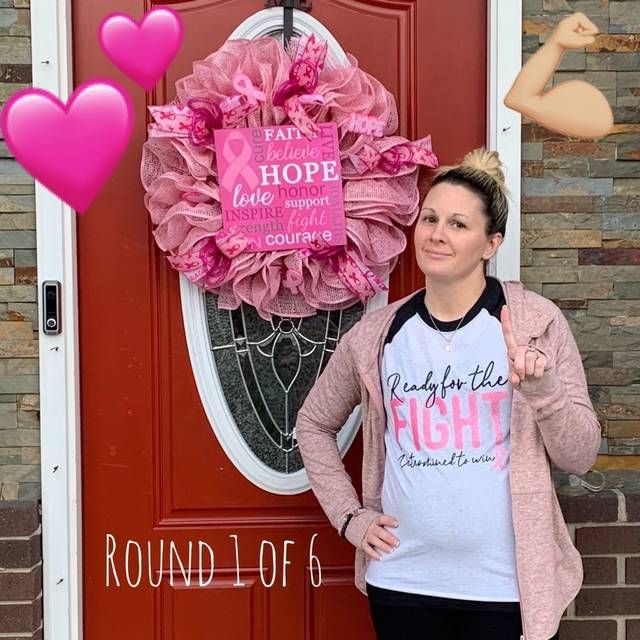
Nancy Potsko, 36, is seen during her battle with breast cancer, which was diagnosed earlier this year.
Courtesy Nancy Potsko
Click here to subscribe today or Login.
For a long time, Nancy Potsko believed it was probably a cyst.
“This lump had been inside me for six-plus years,” the Nanticoke resident said during an interview this week.
After all, it moved around — as cysts can do — and a previous health care provider advised that the lump could be a cyst.
Earlier this year, Potsko was playing with her youngest child, who bumped the lump.
“The skin above it bruised,” she said. The bruising did not go away. And so she turned to her family doctor.
On Feb. 3, Potsko was diagnosed with invasive ductal carcinoma, a form of breast cancer in which the cancer has “invaded” or spread to the surrounding breast tissues, as breastcancer.org explains.
Just 36, Potsko this year has undergone a double mastectomy, reconstructive surgery, six rounds of chemotherapy and radiation treatment, with her last regular appointment set for the end of this month.
Potsko is among a relatively small group of Americans diagnosed with breast cancer under 40 — roughly 12,000 each year, according to the New York-based Young Survival Coalition. Such patients typically have not yet begun having mammograms, and often detect cancer themselves, as Potsko did.
“Nancy is a young woman, who felt a breast mass and it was discovered she had an abnormality,” said Dr. Jacqueline Oxenberg, a Geisinger surgical oncologist. “She’s actually younger than the age where we would typically screen women but fortunately, she felt something and brought it up to her provider, so our team was able to care for her.”
Understanding the possibility for invasive cancer to recur, Potsko said she opted for a double-mastectomy, and didn’t hesitate to communicate that to Oxenberg and her care team.
“I would say ‘just take them. Chuck them,’” Potsko said, explaining that she did not want to risk having a recurrence.
As Oxenberg explained, the tumor was partially aggressive, so it could have grown quickly and spread.
But, Potsko was also relieved to learn that implants were an option.
Oxenberg said she performed a bi-lateral nipple-sparing mastectomy. That is a procedure which allows for better cosmetic outcomes — including implants — and for many patients, an improved quality of life, the National Institutes of Health notes.
Every patient’s road to recovery is different. Potsko acknowledges that there have been difficult days, but that overall “I consider myself lucky with chemo.”
“I would be tired for two days, then bounce back to being myself,” she said.
With four children and a stepchild, ages 4 to 19, Potsko leads a busy life, but also said she never missed a youth sports game, and also is grateful for the way her family has rallied around her.
It was very much an emotional time for the family. Potsko’s brother, Nanticoke Mayor Rich Wiaterowski, died in late 2018 after a battle with acute myeloid leukemia. He was 45.
One of the things Potsko had to reassure her children about was that her cancer, and treatment, were “different from what Uncle Richie” went through.
“They were good through it all,” she said of her children.
What Potsko wants every woman to know, is how important it is to be aware of their bodies and their health, and never hesitate to have them checked out, voice any concerns with their doctors, and ask questions about their care and diagnosis.
“It’s your own body,” she said.






